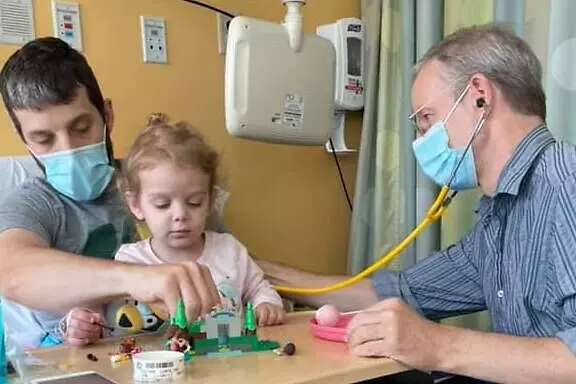Pediatric care is a specialized branch of medicine that focuses on the health and well-being of infants, children, and adolescents. It plays a crucial role in ensuring the proper growth and development of young individuals, setting the foundation for a healthy future. In this article, we will delve into the importance of pediatric care, the benefits it offers, challenges in accessing it, and how it ultimately impacts the lives of children and families.
Why Pediatric Care Matters
Early Detection and Prevention
One of the key aspects of pediatric care is early detection and prevention of potential health issues in children. Regular check-ups and vaccinations are essential to monitor the child's overall health and ensure they are protected against preventable diseases. Pediatricians also focus on tracking growth and development milestones, identifying any delays or concerns that may require intervention.

Expertise in Children's Health
Pediatricians undergo specialized training in the field of pediatric medicine, equipping them with the knowledge and skills to address the unique health needs of young patients. From common illnesses to complex conditions, pediatricians have a deep understanding of child-specific health issues and are adept at providing tailored care for each individual.
Building a Relationship with a Pediatrician
Establishing a relationship with a pediatrician fosters continuity of care and allows for personalized attention to the child's health needs. A strong bond between the pediatrician, the child, and the parents cultivates trust and comfort, making it easier to navigate healthcare decisions and address any concerns that may arise.
Benefits of Pediatric Care
Comprehensive Healthcare Services
Pediatric care encompasses a wide range of healthcare services, including the diagnosis and treatment of illnesses, management of chronic conditions, and behavioral and developmental assessments. A pediatrician serves as a primary care provider, addressing all aspects of a child's health and well-being.

Health Promotion and Education
In addition to treating illnesses, pediatricians play a vital role in promoting health and wellness among children. They offer guidance on nutrition and exercise, provide advice on safety and injury prevention, and support mental health and emotional well-being. By educating both children and parents, pediatricians empower families to make informed decisions about their health.
Coordination of Care
Pediatric care involves coordinating with other healthcare providers to ensure comprehensive and integrated care for children with complex needs. Pediatricians make referrals to specialists when necessary, collaborate with other professionals involved in the child's care, and advocate for the child's health needs within the healthcare system.

Family-Centered Approach
A family-centered approach is fundamental to pediatric care, recognizing the importance of involving parents in decision-making and supporting the family as a whole. Pediatricians work closely with families to address their concerns, provide emotional support, and ensure that healthcare decisions align with the values and priorities of the family.
Challenges in Accessing Pediatric Care
Barriers to Healthcare
Despite the importance of pediatric care, many families face barriers when it comes to accessing healthcare services for their children. Cost of medical care, limited availability of pediatricians in certain regions, and language and cultural barriers can all hinder a family's ability to seek timely and appropriate care for their children.
Addressing Disparities in Care
Addressing disparities in pediatric care is essential to ensure that all children have access to quality healthcare services. By expanding health insurance coverage, increasing community resources and support, and advocating for healthcare equity, we can work towards eliminating barriers that prevent children from receiving the care they need.

Conclusion
Pediatric care is a critical component of ensuring the health and well-being of children, setting the stage for a lifetime of wellness. By prioritizing pediatric care, parents can provide their children with the support and guidance they need to thrive. It is essential to advocate for access to quality pediatric care for all children, regardless of their background or circumstances. Together, we can create a healthier future for the next generation.
FAQs
Q: Why is pediatric care important for children?
A: Pediatric care is important for children because it focuses on monitoring their growth and development, detecting health issues early, and providing specialized care tailored to their unique needs.
Q: What benefits does pediatric care offer for families?
A: Pediatric care offers comprehensive healthcare services, health promotion and education, coordination of care with other healthcare providers, and a family-centered approach that ensures the child's overall well-being.
Q: What are some challenges in accessing pediatric care?
A: Challenges in accessing pediatric care include barriers such as the cost of medical care, limited availability of pediatricians in certain regions, and disparities in healthcare that prevent some children from receiving timely and appropriate care.
Q: How can disparities in pediatric care be addressed?
A: Disparities in pediatric care can be addressed by expanding health insurance coverage, increasing community resources and support, advocating for healthcare equity, and working towards eliminating barriers that hinder access to quality care for all children.


0 Comments